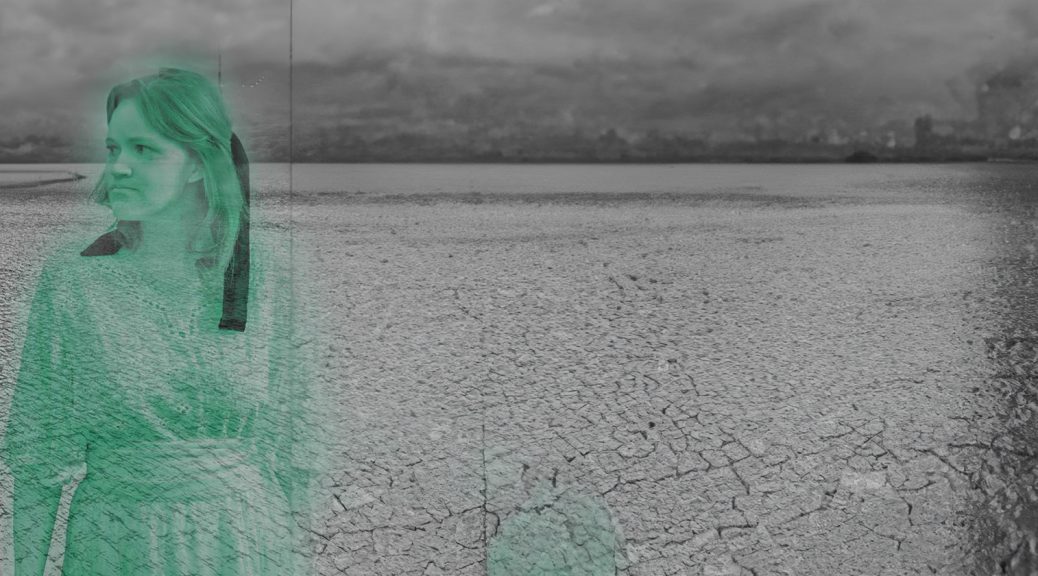
This is a play – by JM Barrie, the author of ‘Peter Pan’ – that shouldn’t work today. First produced in 1920, it puts stereotypical characters into conventional settings and develops conversations between them in dated, middle class English. There is no direct conflict and the use of clichéd idiom and vocabulary is stifling. On top of this, the plot splits between two very different places and then takes fifty years to completely unravel.
Yet it does work. Barrie prompts you into reconsidering some time-honoured and appropriate literary themes. This may be because in ‘Mary Rose’ he deploys a crude form of surrealism, using it to open up another dimension behind the mind-numbing realism.
A little girl goes missing on a small island during a family holiday. After a month she reappears, unharmed and unconscious any time has passed. Since her parents are overjoyed to have her back, this mystery is accepted. Because it is never explained, though, sitting in the audience you try to rationalise it. Is it a reference to the number of children who died in childhood before the advent of modern medicine and hospital treatment – and of how a century ago parents simply had to cope?
Because of their daughter’s brush with death, the parents in the play are overly protective of her. They worry about her getting married. She does, however, and at first everything goes well – she has a baby boy – but when she persuades her husband to take her back to the island where she once disappeared – she disappears again, this time apparently for good.
You puzzle over Barrie’s intention. You think perhaps now he is referring to how often women died in childbirth before antibiotics were discovered. But huge numbers of young people had died in the flu epidemic that followed the First World War. A lot of households had to deal with losing their daughters as well as losing their sons. The mystery in the play echoes a social environment where a generation grew up with its members not having known one or both of their parents.
‘Mary Rose’ doesn’t wallow in sorrow. Mary’s parents and husband get on with their lives. The family maid becomes a surrogate daughter and is promoted to being a paid companion for Mary’s mother. But, in yet another twist irreconcilable with everyday reality, Mary returns after a quarter of a century. She is unchanged and, again, doesn’t know what has happened. Of course, everyone close to her has aged to the point at which she cannot recognise them – even though they all recognise her. Trying to grasp the situation, you consider the issue of mental stability. Mary is like someone who has gone mad, still believing herself to be young when she is middle-aged. The unhappy atmosphere in the family re-union thus becomes realistic and credible, even though the route the story has taken to set it up has been fantastic.
To round the play off, the story fast forwards in a movement reminiscent of ‘The Winter’s Tale’ –
‘Impute it not a crime
To me or my swift passage that I slide
O’er sixteen years, and leave the growth untried
Of that wide gap, since it is in my power
To o’erthrow law and in one self-born hour
To plant and o’erwhelm custom.’
Only Barrie’s story skips another twenty-five years, to the return of Mary’s son, Harry, to the house of his grandparents. There he encounters his mother, now a ghost.
A play which reminds you of the quote you learned for your A level English exam can’t be all bad. ‘Mary Rose’ is not on the scale of a Shakespearean play, but it gets away with what might just be a device – the use of unreal passages of time – to force consideration of family life – at this point, a kind of climax – reconciliation. The long-lost son is allowed a (brief) meeting with the mother he never knew, while she discovers her son has led a full life, a discovery that allows her to disappear forever – happy at last. Barrie succeeds in infusing his story with some poetry – as he had earlier with ‘Peter Pan’.
You could leave the theatre thinking about how surrealism never really got going in England, perhaps because of our insular attitude towards Europe, perhaps because our intelligentsia didn’t speak any foreign languages. You might also want to wonder why Barrie, who was very well connected with the other literary figures of his day, is no rival for Chekov, who was born in the same year. He’s hardly an English Ibsen, either. But whether you’re interested in its background or not, the York Actors Collective deserves congratulations for reviving a play that is so little known. (They won’t have earned much for their work, either, as it only resulted in a short run in a studio space.)
The Collective managed to wring the few laughs there are from the script. They made the stuffed shirt characters more or less sympathetic. The scenes didn’t drag as they might have done and the conversations, although clunky and predictable, rattled along without the need for overacting. The addition of a slight Australian accent for Harry, and a Hebridan brogue for Cameron, the gillie who accompanies Mary and her family to the little island, added colour. I didn’t find the portrayal of Mary’s husband, Simon, convincing but it is nightmare role to play, as he – a naval officer – is completely devoid of personality. The set was minimal but adequate for a studio production. The period atmosphere was caught by a few items of furniture and the appropriate clothing.
Theatres shouldn’t run too many revivals at the expense of new work, but there are a number of plays out there which are unfamiliar to the general public. Given the right kind of treatment, venues will benefit from putting them on. We saw this with the National’s ‘An Inspector Calls’ a few years ago and also with Theatr Clwyd’s production of ‘Rope’ in July this year. More, please.

